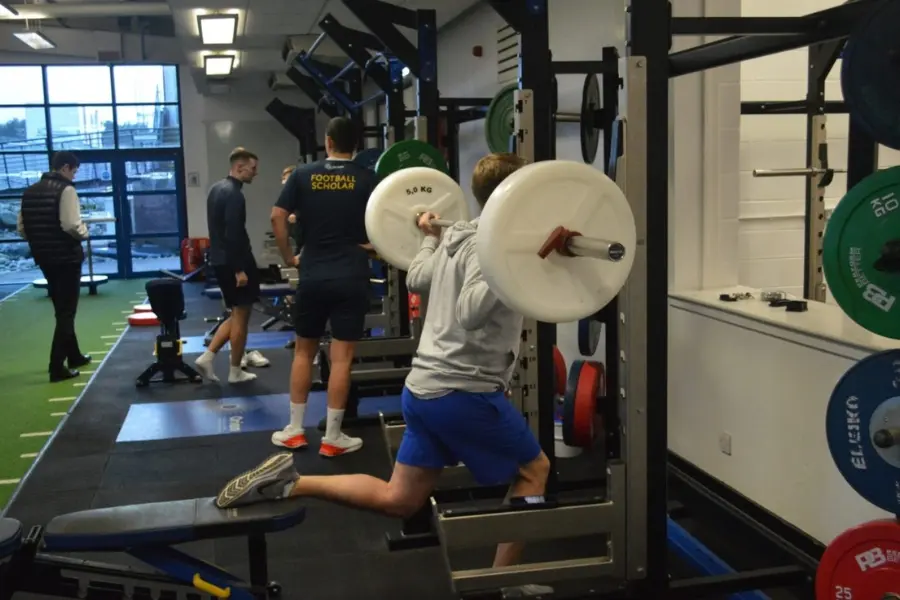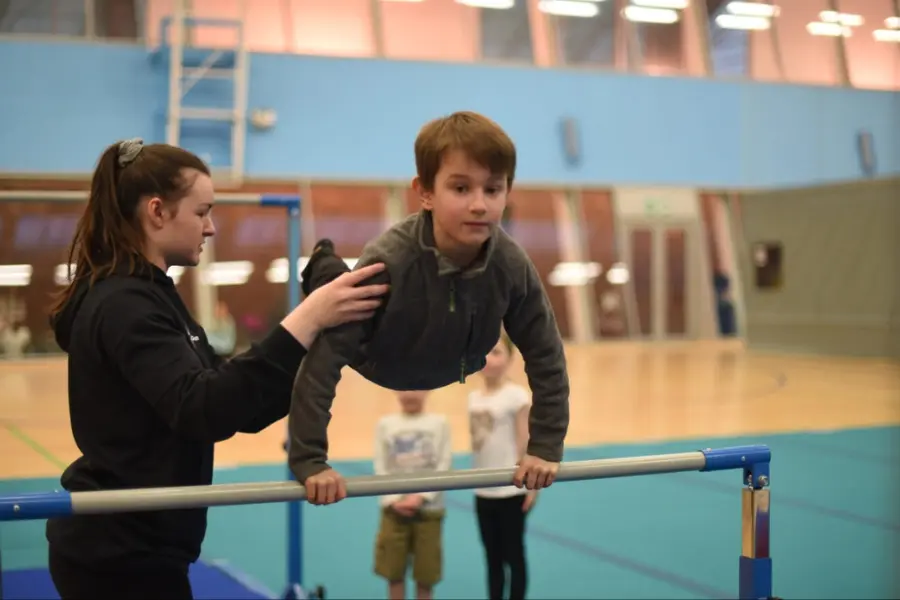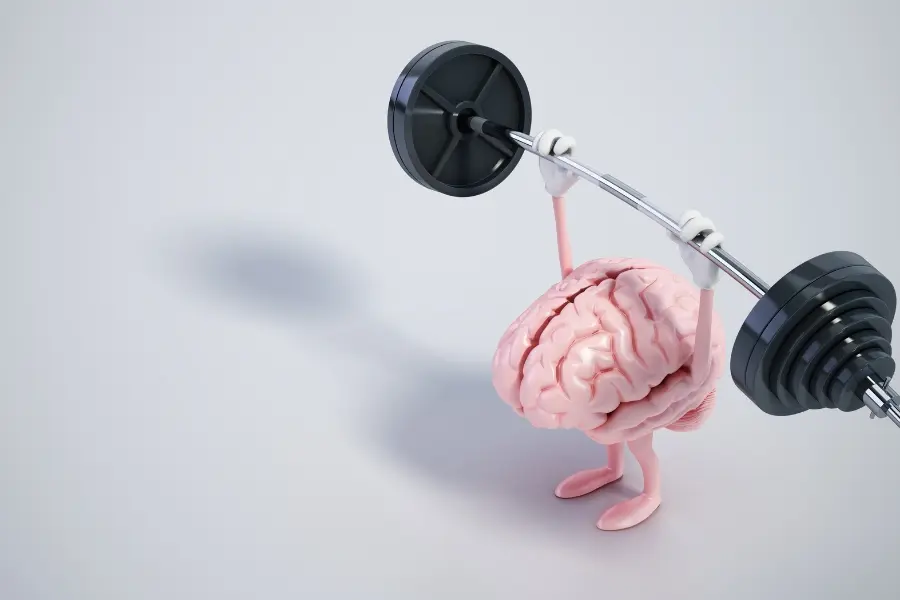People join the gym for variety different reasons, from getting more fit and active, to building strength and endurance, all which can be achieved through resistance training. Resistance training can provide many benefits from increased strength and muscle mass to reducing risk of age related diseases. In today's blog, we explore some of these benefits and why you should prioritise resistance training as part of your workout routine.
Benefits of Resistance Training
I’m sure many of us are aware of some of the common benefits of resistance training: increased strength, increased muscle mass and replacing the need for a functioning personality with a love of bicep curls (or is that one just me?). But what you may not be aware of are some of the more obscure, novel benefits of chucking some weights around.
Luckily for you, we are going to use our old friend ‘Science’ to help us examine 3 unexpected benefits of resistance training and why you should consider jumping on that resistance-training train!
Decrease in Disease Risk

It is easy to see how resistance training may reduce our likelihood of musculoskeletal ailments, such as increased muscle mass and proprioception due to resistance training decreasing our risk of having an injurious fall. It is perhaps less intuitive to see how resistance training decreases our risk of diseases such as cancer and diabetes.
One anonymous 2023 literature review featured in Tufts University ‘Health & Nutrition Letter’, found that strength workouts were correlated with a 10 to 17 percent lower risk of cardiovascular disease, cancer, diabetes, and death from any cause.
Strength training has also been shown to significantly reduce the risk of age-related diseases such as osteoporosis and arthritis (Stojanović. et al., 2017). Additionally, work from Latham, N & Liu, CJ (2010) has shown how resistance training benefits older adults living with osteoarthritis resistance training. This literature review summarised the findings of randomised controlled trials of resistance training by older people with osteoarthritis A significant benefit was found in lower-extremity extensor strength, function, and pain reduction.
Resistance Training Can Aid in Childhood Development

It is not just older adults that benefit from resistance training; multiple studies have shown the numerous benefits resistance training provides adolescent and paediatric populations.
One 2015 study from Faigenbaum et al. verified the physical benefits strength training provides children. This study examined 41, 4th grade participants, with 20 of these children following an 8-week strength and skill-based program; the other 21 were a control group. This workout program was performed twice per week at the start of each PE class and took roughly 15 minutes to complete. Even with this relatively low-volume program, after the end of the 8 weeks, the workout group showed significant improvements in aerobic capacity, push-ups, sit and reach flexibility, and single-leg hop when compared with the control group.
Furthermore, in their 2022 literature review, Dos Santos Duarte Junior et al. posit that strength training may aid in childhood and adolescent development through ‘increase in muscular fitness and bone mass, production of IGF-1 growth factor, regulation of body fat, cardiovascular and lipid profile, increase in motor development or sports performance’ with little to no increase in injury risk.
The benefits of strength training in younger populations go beyond just physical; however, with a 1995 article from the Journal of ‘Strength & Conditioning’ suggesting an increase in mental discipline and socialisation in children participating in team sports. The same article also communicates an increase in a child’s attentivities to homework and other responsibilities in the hours following a strength session.
For all the parents now wondering: Yes, we do offer junior memberships at Oriam, alongside a fantastic youth development programme for young athletes!
Improved Cognitive Function

Furthering the point of resistance training offering benefits beyond the physical, research has also shown the numerous physiological benefits of strength training across populations of all ages.
A 1997 study from Tsutsumi et al. examined psychological and behavioral changes in 42 sedentary older adults with a mean age of 68 who followed a 12-week Strength Program. Naturally, physiological factors such as muscle strength and body fat improved. More surprising however were the psychological changes experienced by the study group, including improvements in mood, reduction in anxiety, and perceived confidence for physical capability.
Research Goldfield et al. (2015) concurs with this correlation between strength training and positive mental health outcomes. This study examined 304 post pubertal adolescents who were randomly split into one of 4 groups to follow a 4-week training program: Aerobic Training, Resistance Training, Aerobic & Resistance Training combined, and a non-exercise control group. All groups improved on body image and physical self-perceptions over the course of the study, with the resistance training group improving most on overall self-esteem. The resistance training groups were also found to experience lower rates of depressive symptoms.
Maximising the Benefits of Resistance Training
These are only some of the many benefits that resistance training has to offer. And the best part is, these benefits carry whether you are powerlifting, bodybuilding or attending your weekly body pump class. Of course, if your goal is to increase your all-out chest strength, a barbell bench set up will provide more specific assistance with that than a spin class will, but by and large the core benefits of resistance training are independent of the specific modality used.
Thus, if you haven’t already, click our membership tab above and sign yourself up with an Oriam Membership today. And if you are looking for guided assistance to better realise the aforementioned benefits of resistance training, book in your complementary Personal Training Session with me at [email protected]!
Till next time folks!

About the Author
Stuart is a Personal Trainer at Oriam and has a wealth of experience supporting people with their fitness and wellbeing. He enjoys working with people to help them achieve their fitness goals.
References:
‘The Health Benefits of Strength Training’ (2023) Tufts University Health & Nutrition Letter, 41(1), p. 3. Available at: https://search.ebscohost.com/login.aspx?direct=true&db=sph&AN=162192248&site=ehost-live
Dos Santos Duarte Junior, M.A. et al. (2022) ‘Benefits, risks and possibilities of strength training in school Physical Education: a brief review’, Sport Sciences for Health, 18(1), pp. 11–20. Available at: https://search.ebscohost.com/login.aspx?direct=true&db=sph&AN=155868625&site=ehost-live
Faigenbaum, A.D. (1995) ‘Psychosocial benefits of prepubescent strength training’, Strength & Conditioning, 17(2), pp. 28–32. Available at: https://search.ebscohost.com/login.aspx?direct=true&db=sph&AN=SPH375192&site=ehost-live
Faigenbaum, A.D. et al. (2015) ‘Benefits of Strength and Skill-based Training During Primary School Physical Education’, Journal of strength and conditioning research, 29(5), pp. 1255–1262. doi:10.1519/JSC.0000000000000812.
Goldfield, G.S. et al. (2015) ‘Effects of aerobic training, resistance training, or both on psychological health in adolescents with obesity: The HEARTY randomized controlled trial’, Journal of Consulting and Clinical Psychology, 83(6), pp. 1123–1135. doi:10.1037/ccp0000038.
Latham, N. and Liu, C. (2010) ‘Strength training in older adults: the benefits for osteoarthritis’, Clinics in geriatric medicine, 26(3), pp. 445–459. doi:10.1016/j.cger.2010.03.006. Available at: https://search.ebscohost.com/login.aspx?direct=true&db=sph&AN=127361956&site=ehost-live
Stojanović, M.D. et al. (2017) ‘Benefits of Strength Training for Elderly Women. / Dobrobiti Treninga Snage Za Žene Treće Životne Dobi’, Sports Science & Health / Sportske Nauke i Zdravlje, 7(2), pp. 77–86. Available at: https://search.ebscohost.com/login.aspx?direct=true&db=sph&AN=127361956&site=ehost-live
Tsutsumi, T. et al. (1997) ‘Physical fitness and psychological benefits of strength training in community dwelling older adults’, Applied human science : journal of physiological anthropology, 16(6), pp. 257–266. doi:10.2114/jpa.16.257
